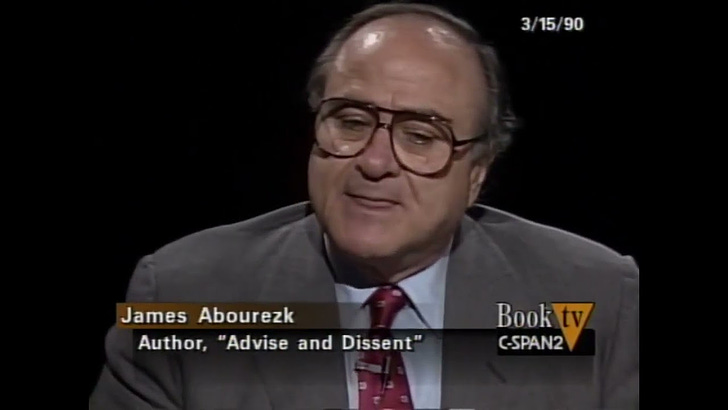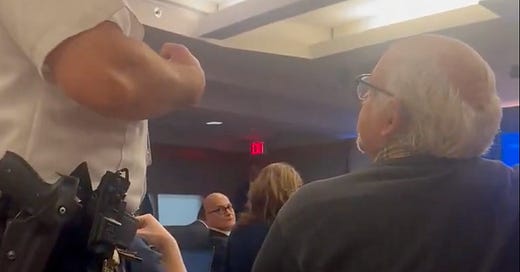
Iran Strikes Israel: Justifiable Retaliation, Netanyahu Trap, Collusion of Militarists or Combination of All of the Above? Two Lessons.
The US, Britain and France prevented a UN Security Council statement condemning the Israeli attack on the Iranian diplomatic facility in Syria, leading to Iranian attack.
On April 3, Reuters reported: “The United States, Britain and France on Wednesday opposed a Russian-drafted U.N. Security Council statement that would have condemned an attack on Iran's embassy compound in Syria, which Tehran has blamed on Washington's ally Israel.”
On April 11, the Iranian mission to the UN stated: “Had the UN Security Council condemned the Zionist regime’s reprehensible act of aggression on our diplomatic premises in Damascus and subsequently brought to justice its perpetrators, the imperative for Iran to punish this rogue regime might have been obviated.”
As I argued yesterday in an interview with Patrick Henningsen, in some respects, an Iranian attack benefits not only Netanyahu, as others have argued, but may also benefit Biden and Trump. Or at least that would seem to have been Netanyahu’s aim.
Iran’s supreme leader, Ayatollah Ali Khamenei, saying the recent Israeli attack on an Iranian diplomatic facility in Syria “means that they have attacked our soil” is actually inaccurate. Contrary to common belief, an embassy or consulate is not the sovereign soil of the country that owns it. (Establishment media reported the response from Israel’s foreign minister, Israel Katz: “If Iran attacks from its territory, Israel will react and attack in Iran,” he wrote in Persian on X.)
Of course Israel, with incredible support from the US and other NATO states, is perpetrating a genocide of Palestinians right now. And Israel violates international law regularly, including in its murderous, illegal attack on the Iranian diplomatic facility in Syria.
Two past crises may be especially relevant and provide lessons:
2006
One interesting parallel is 2006. Hezbollah leader Hassan Nasrallah had said that given Israel taking Lebanese captives, that Hezbollah would take Israeli soldiers. Then Israel started attacking Gaza. Then Nasrallah moved and captured Israelis. Israel attacked Lebanon, causing a massive amount of damage, but Hezbollah effectively beat Israel back. We could see a similar situation here. That is, while the technical reason for the Iranian strike on Israel is the Israeli illegal attack on the Iranian diplomatic facility in Syria, the timing of the Iranian retaliation during Israel’s massive genocidal assault on Palestinians in Gaza is critical.
1980
The Iranians now noting the failure of the UNSC to do its alleged job of maintaining global security is critical and is similar to some of the dynamics around the Iranian hostage crisis.
Former Senator James Abourezk legally represented the Iranian government for a time and remarkably tried to broker an agreement over the hostage crisis which might have saved Jimmy Carter’s presidency and dramatically altered history, but Carter turned it down.
This proposal would simply have meant the US government disclosing facts, and in return the hostages could have been released. Carter’s presidency could have been salvaged and Ronald Reagan would have gotten nowhere near the White House.
Abourezk outlined what happened:
I was actually general counsel for the government of Iran here in Washington at that time, for the embassy here in Washington. It was about two weeks after the embassy was taken over, I decided I'd go over and try to obtain the release of the hostages. So I went over and I negotiated with [Abolhassan] Banisadr, who was then chairman of the Revolutionary Council. And I worked out a deal with him. I -- what the Iranians wanted was to air their grievances against the United States, of which they had many at that time, by the way. You know, we had supported the Shah while he was torturing and killing Iranian citizens. They had found, by the way, in the basement of the American Embassy a CIA counterfeiting operation, counterfeiting [Iranian] money. …
They were very upset about that.… And so anyhow, I -- knowing this -- I said to Banisadr, "Look, if you want to air your grievances, I think, in return for the release of the hostages, that I can get the US Senate to hold big publicized hearings allowing you to do just that." Well, we worked out a deal. It'd be a three-step deal, where we would announce the hearings, he would release the hostages and then we would have the hearings. And he said, "All right. You take that to the Senate and I'll take it to the Revolutionary Council. We'll try to work it through."
So I called Senator Byrd, who was of West Virginia, who was majority leader, and proposed it to him. I called him from Iran. Then when I got back from Iran, I called him up and he said, "Well, the administration is opposed to that kind of a thing." Because Jimmy Carter at that time was standing tough. He was trying to look like he didn't want to negotiate.
Instead, the hostages would be held through the elections and released just minutes after Ronald Reagan was inaugurated in 1981, apparently part of the “October Surprise” conspiracy in which rightwing Republican militarists colluded with the worst elements in Iran to hold the hostages until Reagan was inaugurated. Then you would see the Iran-Contra scandal, with Israel as a go-between, with the US government trading weapons for hostages.















very interesting historical commentary regarding 1980 Iranian takeover of US embassy...
Does anyone want PEACE?
So tired of this........USA/tied to Israel and NO justice for the Palestinians.